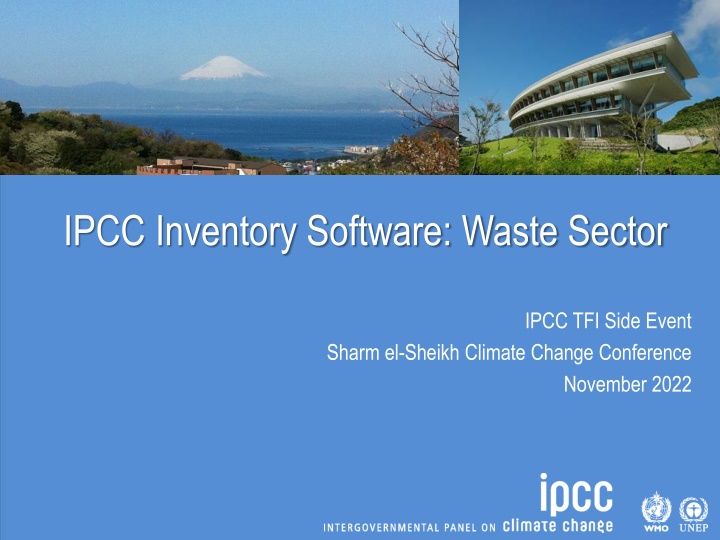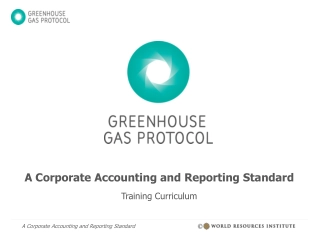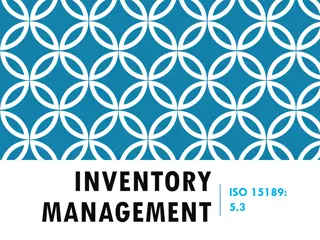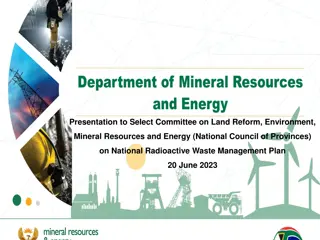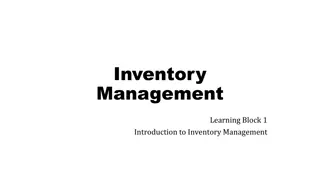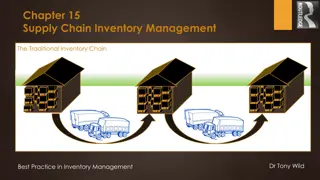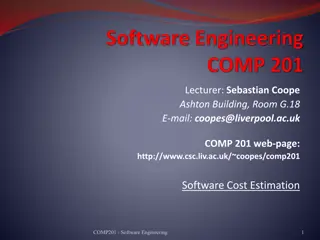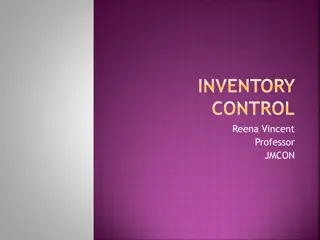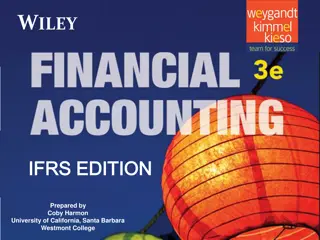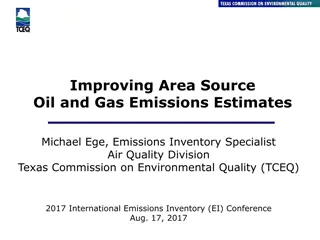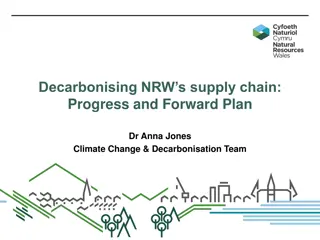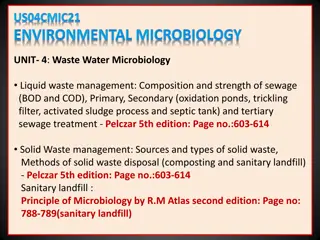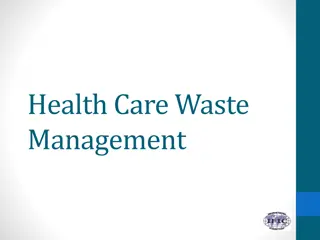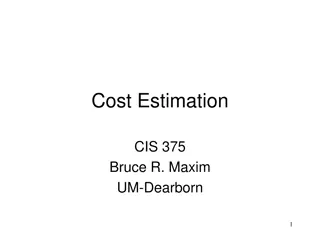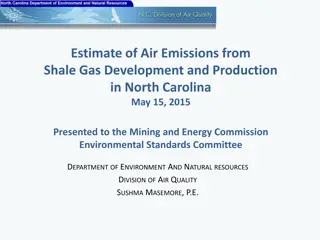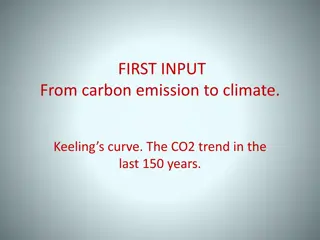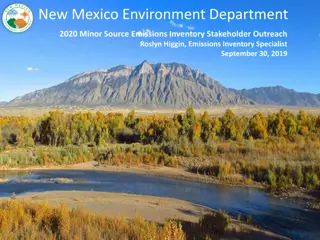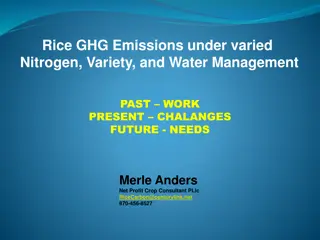IPCC Inventory Software Enhancements for Waste Sector Emissions Estimation
Explore the latest enhancements in the IPCC inventory software related to waste sector emissions estimation. Major updates include subnational disaggregation, Tier 3 methods, wetlands supplement, and improvements in worksheet structure and layout. The software allows for detailed estimation of greenhouse gas emissions at a subnational level, with specific methods for waste incineration and constructed wetlands in wastewater treatment. Additionally, worksheets are provided for different waste disposal and treatment categories, facilitating comprehensive reporting of CH4 and N2O emissions.
Download Presentation

Please find below an Image/Link to download the presentation.
The content on the website is provided AS IS for your information and personal use only. It may not be sold, licensed, or shared on other websites without obtaining consent from the author.If you encounter any issues during the download, it is possible that the publisher has removed the file from their server.
You are allowed to download the files provided on this website for personal or commercial use, subject to the condition that they are used lawfully. All files are the property of their respective owners.
The content on the website is provided AS IS for your information and personal use only. It may not be sold, licensed, or shared on other websites without obtaining consent from the author.
E N D
Presentation Transcript
IPCC Inventory Software: Waste Sector IPCC TFI Side Event Sharm el-Sheikh Climate Change Conference November 2022
Major updates Subnational disaggregation at a category level Tier 3 methods in 2006 IPCC Guidelines (Volume 5) Methods in Wetlands Supplement (Chapter 6) Improvements in worksheet structure and layout
Subnational disaggregation Subdivision allows estimation of emissions at subnational level (e.g., regions by climate zone) Select climate zone Click to define subdivision
Tier 3 methods Estimation of N2O emissions from waste incineration based on site specific data and flue gas concentration (Equation 5.6, Chapter 5, Volume 5, 2006 IPCC Guidelines)
Wetlands Supplement Methods for estimation of CH4 and N2O emissions from constructed wetlands for wastewater treatment Note 1: Worksheets are subject to change due to ongoing update of the software (not updated/changed in beta version 2.83)
Worksheets map Worksheets Total number of worksheets IPCC category Tier 1 Tier 2 Tier 3 4.A Solid Waste Disposal 9 9(+3) 4.A.1 Managed waste disposal sites 1* 4.A.2 Unmanaged waste disposal sites 1* 4.A.3 Uncategorised waste disposal sites 1* 4.B Biological Treatment of Solid Waste 1 1 4.C Incineration and Open Burning of Waste 4 1 4.C.1 Waste incineration 3 1 1** 4.C.2 Open burning of waste 1 1 4.D Wastewater Treatment and Discharge 13 4.D.1 Domestic wastewater treatment 8 6 2 4.D.2 Industrial wastewater treatment 5 4 1 4.E Other 1 1*** Note 2: Worksheet counts show number of tabs and are subject to change due to ongoing update * Additional worksheets to allow reporting of CH4 emissions by solid waste disposal type ** Separate worksheet for Tier 3 estimation of N2O emissions from waste incineration (Equation 5.6 ) ***Implements generic equation (AD x EF). No default values are provided in the 2006 IPCC Guidelines
Worksheets (total) IPCC category Total number of worksheets 4.A Solid Waste Disposal 12 4.B Biological Treatment of Solid Waste 1 4.C Incineration and Open Burning of Waste 4 4.D Wastewater Treatment and Discharge 13 4.E Other 1 Sectoraltotal 31
Summary Subdivision allows subnational disaggregation of emission estimates and flexibility based on data availability and national circumstances Implements higher tier methods of the 2006 IPCC Guidelines (Volume 5) and methods of the Wetlands Supplement (Chapter 6) Improvements in worksheet structure and layout provide more streamlined user interface Guidebook for Waste sector is under development
Thank you https://www.ipcc-nggip.iges.or.jp/index.html
